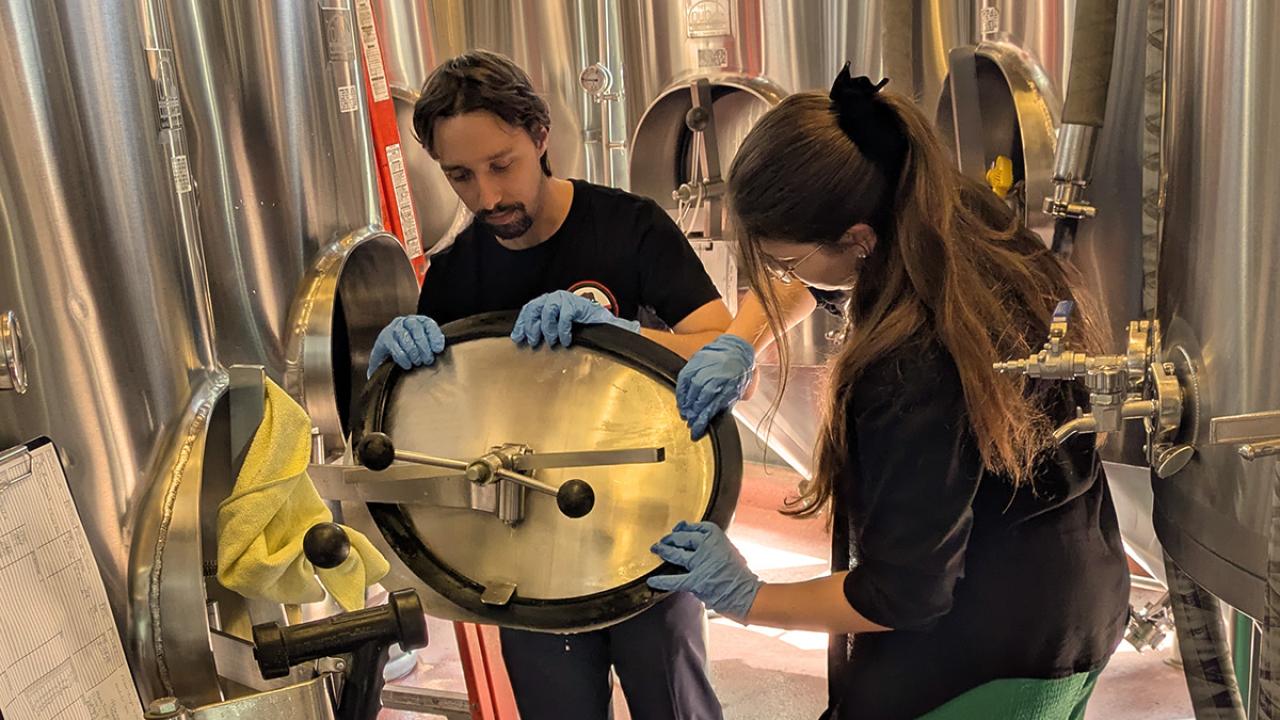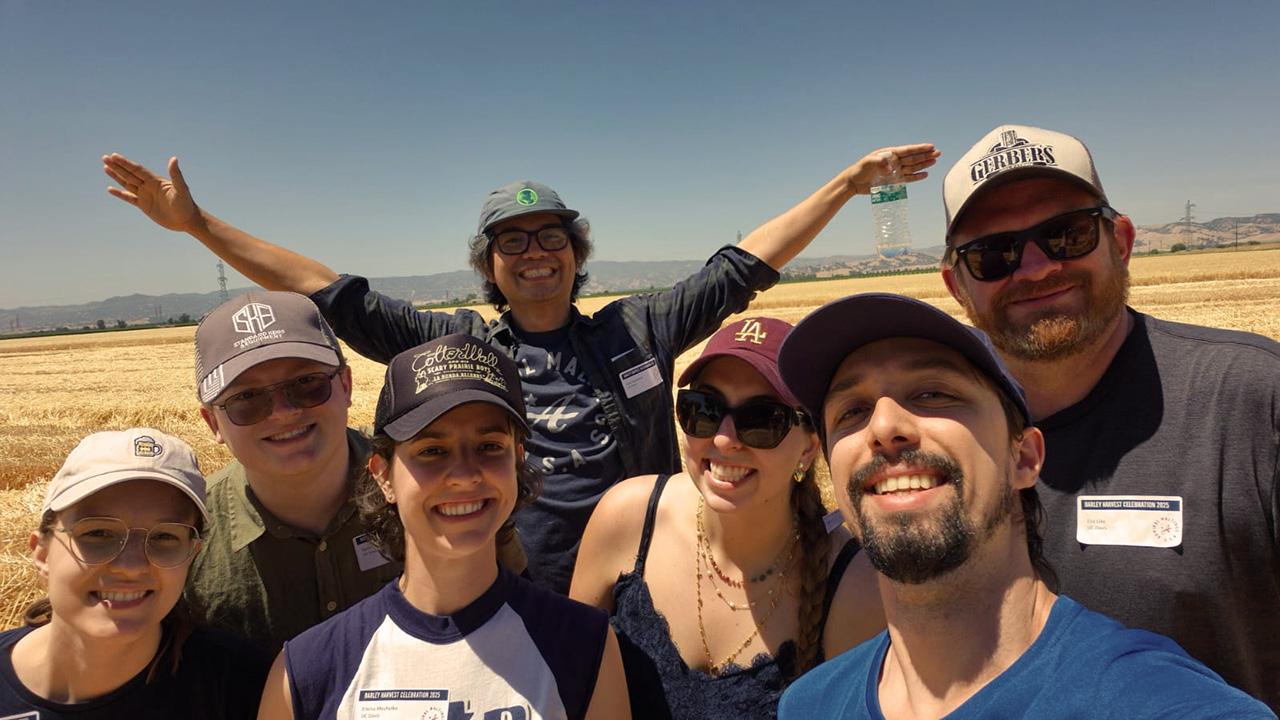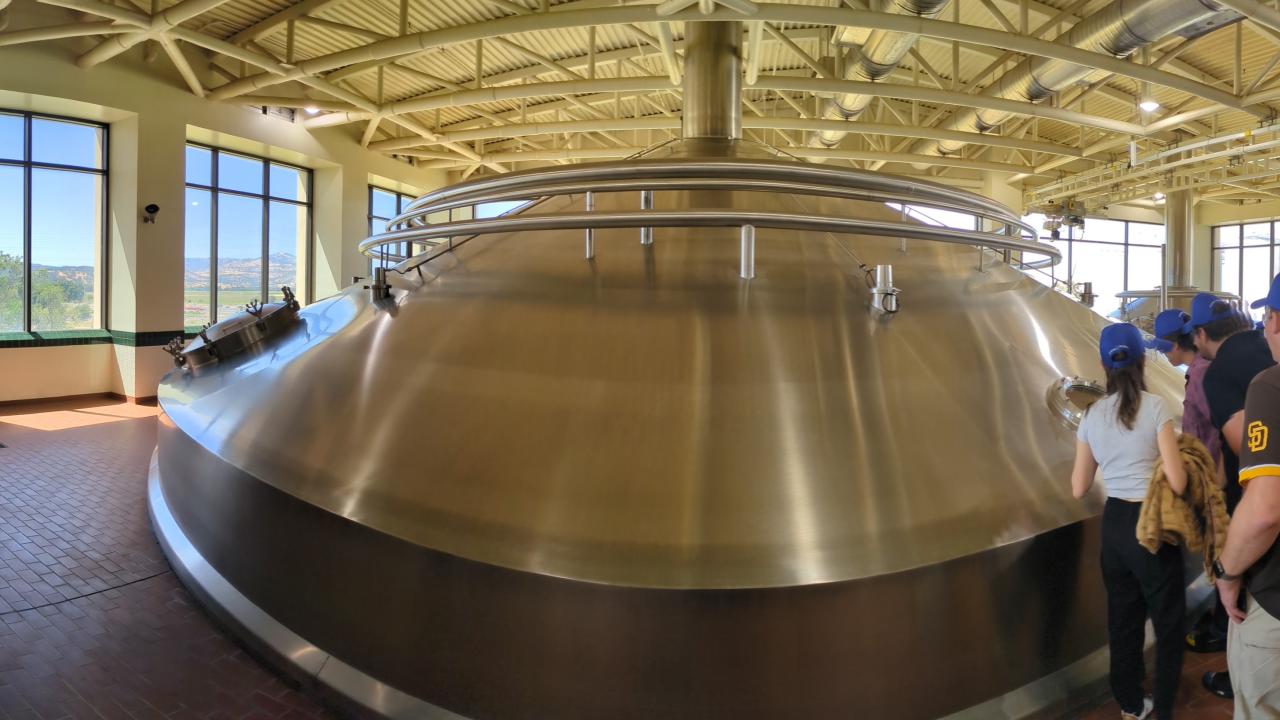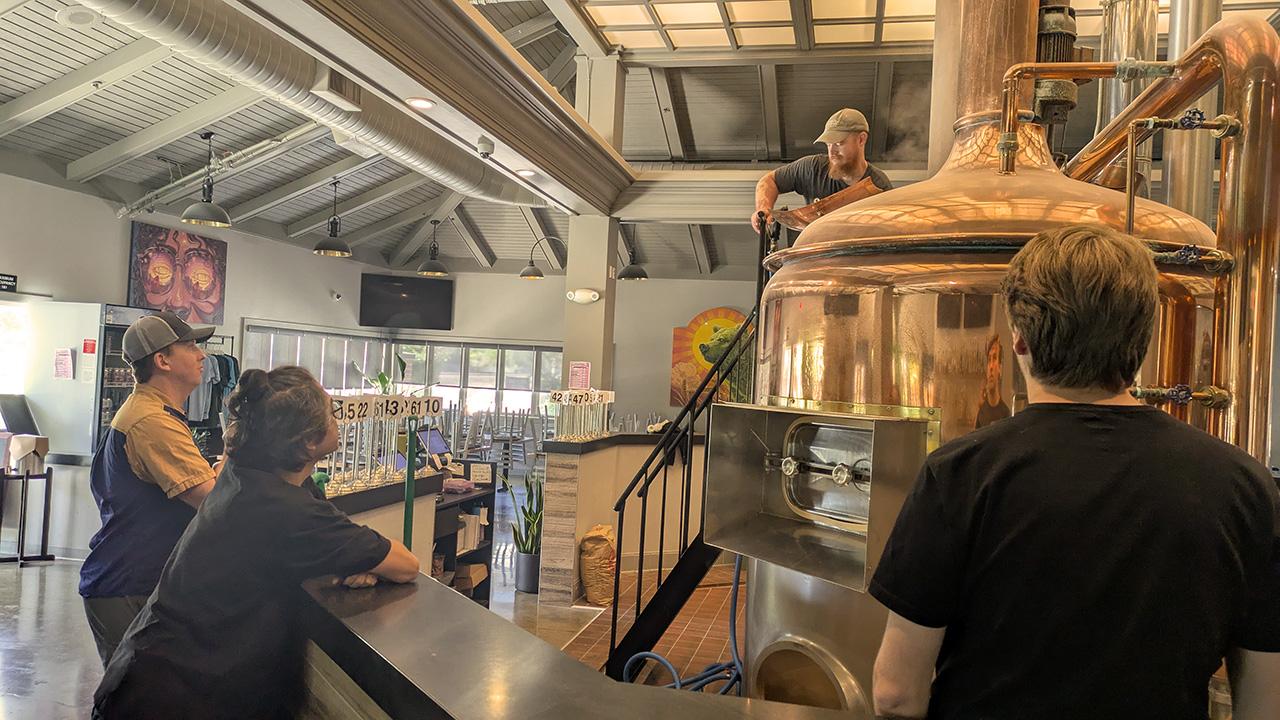
Inside the UC Davis Master Brewers Program: Real Stories, Hard-Earned Insights
What happens when you bring together a group of passionate beer enthusiasts, hands-on training and some of the top minds in brewing science? You get a cohort of brewers—industry professionals exploring new dimensions of their craft and homebrewers diving into formal education—ready to take on the industry, pint by pint.
As the 2025 class of the UC Davis Master Brewers Certificate Program wrapped up their final weeks, we asked them to reflect on their journey—from early passions to hard-earned skills, favorite pours to words of wisdom. Their reflections capture the heart of what this program is all about: turning curiosity into craft and passion into profession.

What brought you to brewing?
Isabella Peressinoto Romero: I work at a malt house back in Brazil, and for me, it’s simple—no malt, no beer. To make the best malt for the best beer, I need to understand how beer is made.
Dalton Netherton: Of all things, I was a funeral director before this. I wanted a career change, and my grandfather used to homebrew in his garage. He told me, “You’ve always liked this,” and encouraged me to pursue it. So here I am.
Matthew Cochrane: I started homebrewing several years ago when I moved from California to North Carolina. At the time, there just wasn’t much good craft beer out there, so I decided to make it myself.
Seth Eisner: I’ve been homebrewing for a while and always wanted to open a restaurant. That’s been the dream since finishing college—which was a long, long time ago. Now that I’ve retired from my job, it finally feels like the right time to make it happen.
Emma Mechelke: People ask me about this a lot. My background is in plant science, and I was working in alfalfa breeding. But I wasn’t enjoying it—I didn’t like corporate ag. I started thinking about my passions, and beer was one of them. There’s a lot of agriculture involved in beer, and that’s what drew me to it.
Leandro Julián Gliosca: I got an internship in brewing right out of college, and that’s how I entered the industry. What I love most is how complex brewing is. There’s so much to learn and experiment with. It’s a process you can really dive into to create the perfect beer.
William Herzog Damke: I joined a craft brewery in 2019 and never imagined I’d end up in brewing. I studied chemical engineering and thought I’d go into petroleum or something like that. Even though I didn’t know anything about beer, an opportunity to work at a brewery came up.
I’ve learned so much—how beer is made, how people connect over it. I started with small companies and now work at AB InBev, the largest brewing company in the world. It’s been quite the journey, and I’m glad I made the leap.
Priscilla Palmeira Lacerda da Silva: I’m a chemical engineer and always knew I wanted to work in industry. But I also wanted to do something fun—something that brings people together and makes the world a little better. I discovered a job at AB InBev online, and that’s where I fell in love with beer. Since then, I’ve been learning everything I can about the process.

What have you learned from the program?
Matthew Cochrane: I’ve learned so much about many different aspects of the brewing industry, especially the deep science behind it all.
Seth Eisner: The science. The underpinnings of brewing. And a bunch of practical stuff, like lab work, brewery visits, brewing batches of beer and talking to academics and practitioners in the industry. It’s a great mix of experiences packed into 15 weeks.
Carlos Henrique Carvalho e Silva: For me, the biggest lesson was starting from scratch. We dove into the books, the science, the articles—the biochemistry of beer. We learned how raw materials are grown and how seeds work. It’s a true from-the-ground-up education.
Emma Mechelke: I had no idea how many logistics go into beer production. There are so many players involved—farmers, processors, brewers, packaging and distribution. Seeing how it all fits together has been really cool.
Eric Like: There’s been so much—everything from microbiology to engineering design concepts. And then there’s the hands-on part. It really covers all the bases.
William Herzog Damke: Working in the brewing area, I’d never done anything with packaging before, so learning about that has been huge for me. Seeing how the packaging side works—and how difficult it is to consistently produce quality beer—was eye-opening.
We also learned a lot about sensory analysis. We’ve tasted so many different beers and heard stories from our instructors, who are brewmasters with incredible backgrounds. They’ve taught us how to analyze and evaluate beer in ways I’d never considered.
What’s your favorite beer?
Isabella Peressinoto Romero: I love wheat beers in general. My favorite one from California has been a juicy wheat beer from Sierra Nevada
Dalton Netherton: My favorite beer to drink is a pale ale, but when it comes to brewing, stouts are the go-to. They're pretty popular in my household.
Matthew Cochrane: I’m very partial to Belgian beers—Belgian golden strong ales are my favorite.
Emma Mechelke: Right now, I’m loving Spotted Cow from New Glarus in Wisconsin. As for brewing, I’m still figuring that out, but we recently brewed an IPA on a classmate’s homebrew system, and it was a lot of fun.
Eric Like: I enjoy nearly every style. Right now, probably a kölsch or pilsner—something light because of the heat. But honestly, the fun of homebrewing is switching it up and brewing what you feel like drinking that week.
Priscilla Palmeira Lacerda da Silva: I love lagers—especially in Brazil, where it’s always hot. They’re perfect for the beach or hiking. Stella Artois is my favorite, and I love that I get to brew it. I’ve also learned here that lagers, especially the clear ones, are actually really hard to make. That surprised me!
William Herzog Damke: Corona is probably my favorite beer to drink. I also enjoy IPAs for their dry, hoppy character, and I like wheat beers too—though they’re a bit messy to brew, especially when you have to peel 100 oranges for a big batch! It’s a lot of work, but it’s fun.
Carlos Henrique Carvalho e Silva: I like almost all styles, but I’m a fan of reds and IPAs—especially the stronger, more bitter ones with higher alcohol content. As for brewing, I really enjoy making beers that involve dry hopping. It’s a lot of work and doesn’t always go perfectly, but when it does, the aroma and flavor payoff is incredibly satisfying.
Leandro Julián Gliosca: Corona is both my favorite beer to drink and to brew. It was the first beer I worked on when I joined the industry, so it holds a special place for me.

What’s your advice to the next class of the Master Brewers Program?
Carlos Henrique Carvalho e Silva: Study hard—especially the science behind everything you do. You’re learning from the people who actually wrote the textbooks. That face-to-face connection with world-class expertise is something you don’t want to miss.
Dalton Netherton: There’s definitely been a lot of trial and error—especially coming from a totally different background. You’re learning from the ground up, and there will be moments when you doubt yourself. Just keep going. And do the readings—they’re a big part of your success!
Isabella Peressinoto Romero: Enjoy every single moment—and explore California! Part of this program is taking what you learn in class and seeing it in real life. Go to breweries. Taste different beers. Talk to people. That’s when everything really starts to click.
Matthew Cochrane: If you can, come in with a little brewing experience—it helps. But if not, be sure to get involved with everything during the program to maximize your hands-on learning.
Emma Mechelke: Come in with an open mind. Don’t put too much pressure on yourself. Be curious, stay open and—most importantly—have fun.
Become a Master Brewer
Craft your future with the UC Davis Master Brewers Certificate Program, available online and in person. Contact an enrollment coach to learn more.
Eric Like: Be ready to learn! There’s a lot of reading, and you’ll be hit with tons of information. But the good news is it’s all fascinating. If you stay engaged, you’re going to get a lot out of it.
William Herzog Damke: Focus on learning as much as you can. Brewing is complex and opens the door to many different career paths. Even the small things you pick up will be valuable later in your work.
Priscilla Palmeira Lacerda da Silva: Study hard and take advantage of the time you have. When you’re working full time in the industry, it’s hard to find time to really read and reflect. So, during the program, dig deep. Ask questions. Try to understand not just how things happen—but why.
- Related article: Mastering the Art and Science of Brewing Online and in the Brewhouse
- Related article: How to Craft Your Career in the Brewing Industry
